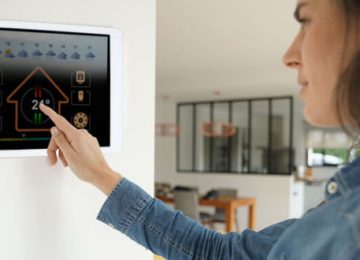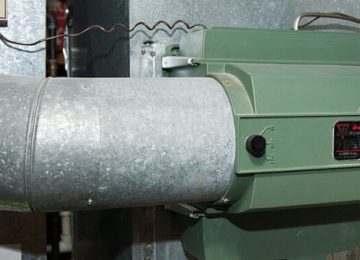You may not realize it but when it comes to your heating and cooling systems, the most important component is your simple air filter. The filter cleans incoming air before it is temperature controlled and distributed throughout the house. Because your filter is the first line of defense in protecting your Philadelphia HVAC system, filters should be changed once a month.
Two Important Functions
Your air filter has two important functions. One is to protect your system from dust or other particles that can cause wear and reduce efficiency. The second purpose is to keep any dust, allergens, pollutants, or even pet dander from being distributed inside your home. In this way, it not only helps your system condition the temperature of the air but also protects your interior air quality. There are filters that are designed to do one better than the other.
Air Filter Classifications
Air filters are classified by their type and their minimum efficiency reporting value, or MERV rating. The MERV rating specifically deals with the filter’s ability to remove particles and pollutants from the air. The higher the rating, the better it performs in keeping air quality at its best.
Disposable Filters
Disposable filters are the most inexpensive filters. They utilize fine fiberglass or polyester mesh to remove particles that are coming in from the air. These will typically have the lowest MERV rating of between 1 and 4 and are specifically designed to protect your system.
Reusable Filters
Although these types offer about the same MERV rating as disposable filters, there is a cost savings associated with these because they can be cleaned and reused. Like the disposable filters, these filters are designed to primarily protect your system.
Pleated Filters
Pleated filters use fiberglass, polyester or some other synthetic folded into pleats. This serves to increase the surface area of the filter in order to remove more particulates. The MERV rating on these is between 5 and 13. These provide a bit more air quality filtering capability than typical disposable filters.
Electrostatic Filters
Electrostatic filters utilize an electric charge in order to attract airborne particles as they pass through. With this added feature, they have a higher MERV rating at about 15. But electrostatic filters are not compatible with all HVAC systems.
HEPA Filters
HEPA filters are the most effective for air quality. With a MERV rating of between 17 and 20, these filters have been shown to remove over 99 percent of air contaminants. But these are typically too restrictive for normal home HVAC use. They are much more expensive and require a far greater amount of air pressure in order to force air through.
Which is the Best One for You?
For the typical homeowner, an air filter with a MERV rating of 8 to 10 should be sufficient for a home system. Although more high-efficiency filters remove larger quantities of airborne particles, the typical household HVAC system is not compatible and may be taxed when using these. The best way to determine which filter is best for your system is to check your owner’s manual or consult with a Philadelphia HVAC repair technician.

![How to Determine the Best Air Filter For Your HVAC System You may not realize it but when it comes to your heating and cooling systems, the most important component is your simple air filter. The filter cleans incoming air before it is temperature controlled and distributed throughout the house. Because your filter is the first line of defense in protecting your Philadelphia HVAC system, filters […]](https://blogs.affordablehvacpa.com/wp-content/uploads/2018/07/HVAC-Air-Filter-770x330-1-750x330.jpg)


